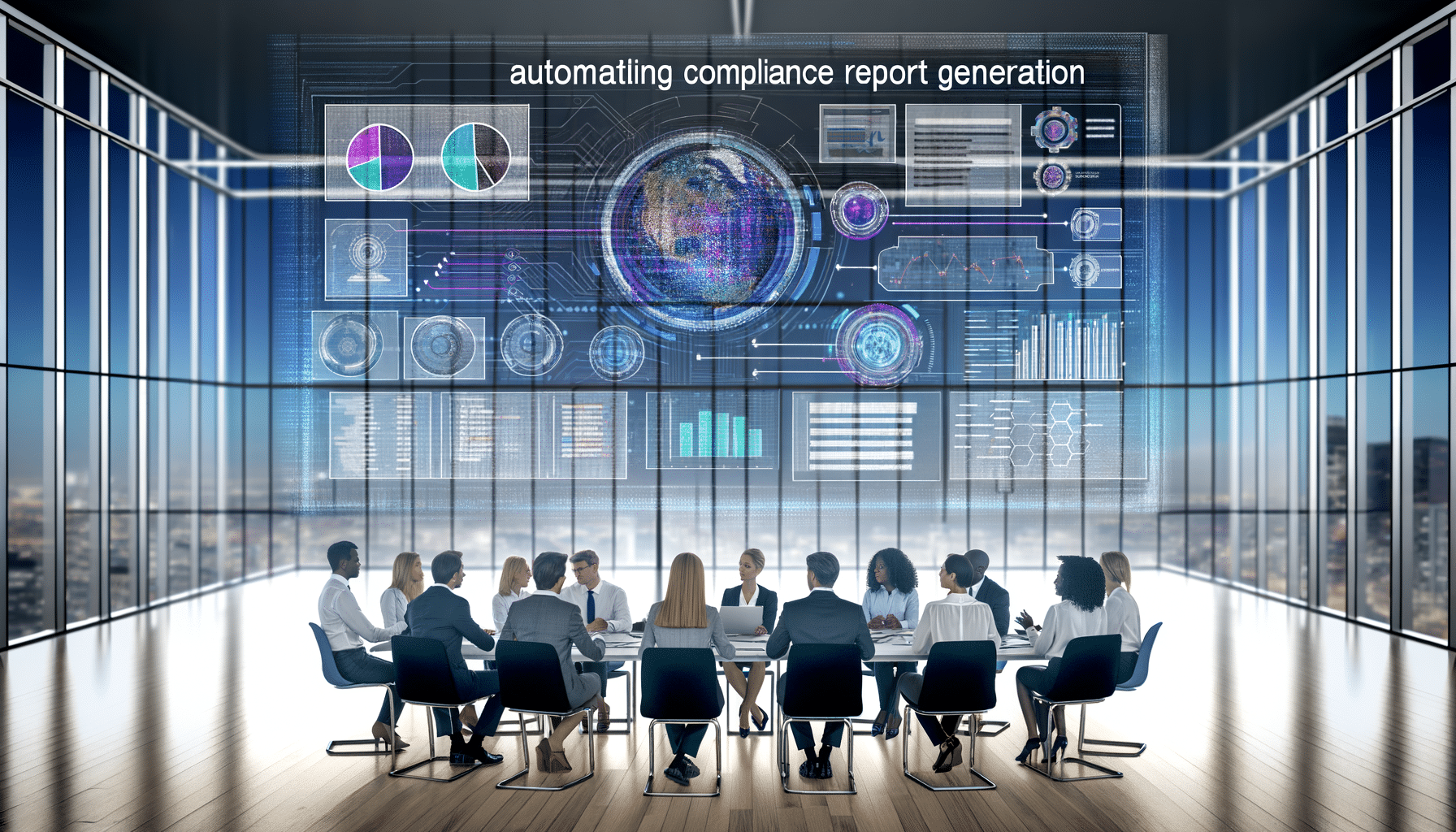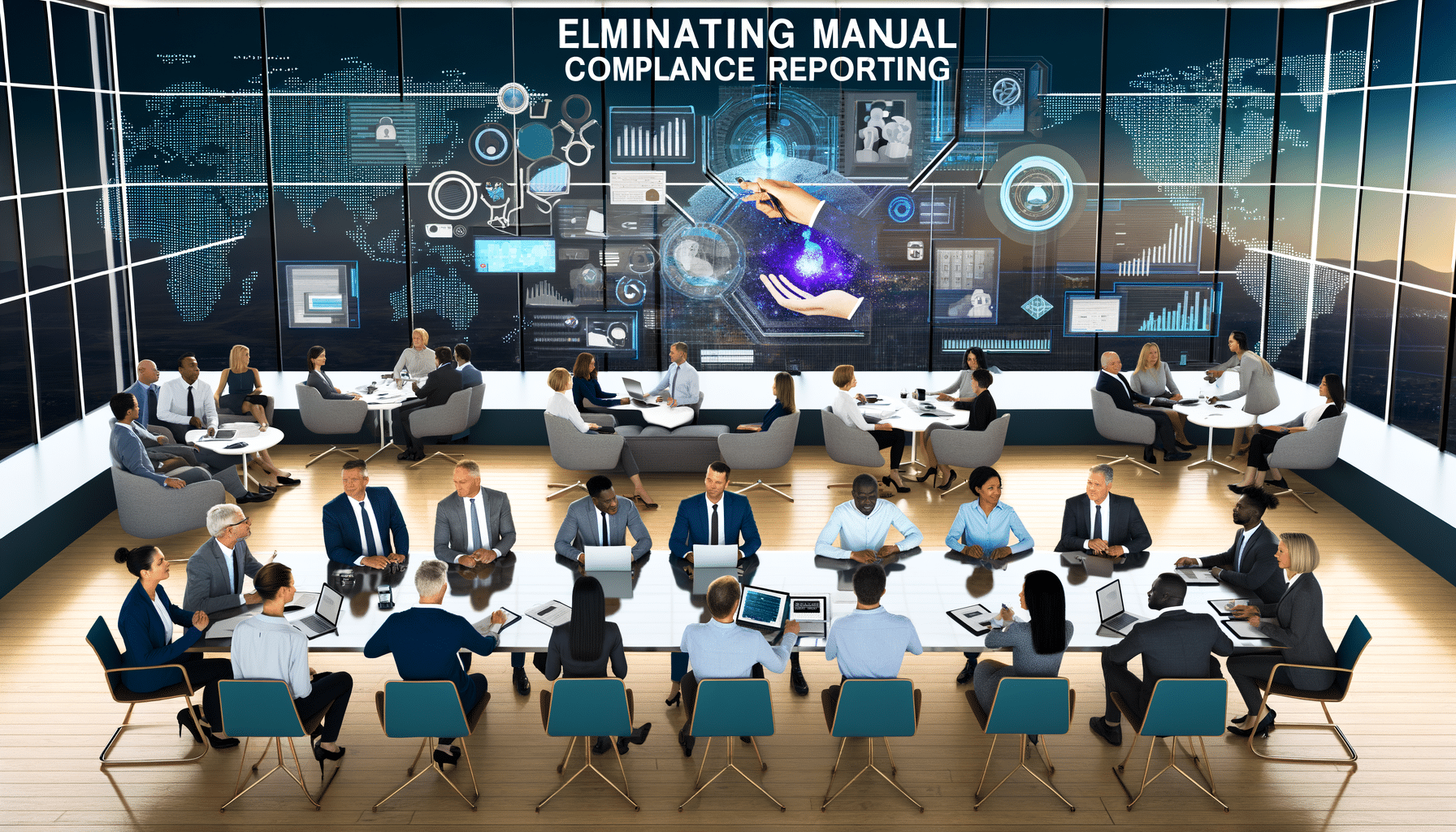- ESG Reporting
- November 16, 2024
Solving Compliance Reporting Bottlenecks

Revolutionizing Compliance Reporting Through AI-Powered Solutions
In the dynamic world of compliance, where regulations are constantly changing and expanding, managing and reporting data effectively is paramount. The compliance landscape is an intricate web of regulatory requirements that organizations must navigate diligently. Reporting bottlenecks have long been an impediment in this field, primarily because traditional methods are cumbersome and time-consuming. Today, let’s delve into how we can revolutionize this space by leveraging AI-powered automation.
Understanding the Challenge of Compliance Reporting
Compliance isn’t just a checkmark exercise; it’s a critical element of a robust organizational framework. However, the inherent complexity often leads to bottlenecks in the reporting process. These bottlenecks arise due to various factors:
- High volume of data to be processed and analyzed
- Manual documentation and data entry procedures prone to errors
- Divergent regulations across departments and regions
- Time-consuming approval workflows
These challenges not only hinder timely compliance but also increase the risk of non-compliance, which could lead to severe repercussions.
Embracing AI-Powered Automation
As an entrepreneur at the forefront of technological innovation, I recognize the potential of AI and blockchain in tackling reporting bottlenecks head-on. RecordsKeeper.AI was conceived with a mission to simplify and enhance compliance reporting through advanced technology. But how does automation fit into this puzzle?
Automating Data Categorization
AI elevates data management by automatically classifying, tagging, and organizing records. This eradicates manual errors and ensures that data is readily accessible and accurate. Implementing automated categorization transforms what was once a labor-intensive endeavor into a streamlined digital process.
Ensuring Data Integrity with Blockchain
Incorporating blockchain technology bolsters data integrity, making compliance reports tamper-proof and immutable—an essential factor for auditing purposes. By embedding blockchain, records remain secure and verifiable, enhancing the trustworthiness of your compliance documentation.
Enhancing Real-Time Analytics
Real-time analytics powered by AI algorithms offer insightful compliance trends and patterns. This capability allows teams to proactively address potential compliance issues before they morph into larger problems. Additionally, the ability to generate comprehensive reports quickly enables faster decision-making and more agile compliance strategies.
Benefits of AI-Powered Compliance Reporting Solutions
Understanding the benefits of AI-powered solutions within compliance reporting is essential for organizations striving for efficiency and accuracy:
- Reduced Processing Time: Automation expedites the reporting cycle, translating to valuable time savings and resource optimization.
- Improved Accuracy: Machine learning algorithms minimize human error, ensuring that data is precise and reliable.
- Cost Efficiency: Streamlining processes reduces operational costs associated with manual labor and reduces potential fines from non-compliance.
- Scalability: AI solutions are adaptable to scaling business needs, seamlessly accommodating increased data volumes.
- Compliance Insight: Enhanced analytics provide deeper insights into compliance performance metrics.
The Strategic Advantage of RecordsKeeper.AI
At RecordsKeeper.AI, the goal is to transform compliance management into a strategic advantage rather than a daunting task. By seamlessly integrating AI and blockchain, our platform effectively addresses complex compliance challenges, offering an all-in-one solution for data rooms, policy management, and creating audit-ready reports.
Moreover, we facilitate real-time compliance monitoring tailored to industry-specific standards such as GDPR, HIPAA, and SOX, thus ensuring every report is in strict alignment with regulatory mandates.
Conclusion: A Call to Action
Embracing AI for compliance reporting not only alleviates bottlenecks but also propels organizations toward operational excellence. By leveraging technology, we empower compliance officers, legal teams, and financial departments to unlock the full potential of their data while safeguarding their assets.
If you haven’t explored RecordsKeeper.AI yet, now is the time. Let’s modernize your compliance reporting into a seamless and efficient process. For further insights and updates on how AI is reshaping various industries, I invite you to follow my journey and engage in this exciting dialogue on innovation.
Together, let’s lead the charge in turning compliance management from a necessity into a strategic powerhouse.
Toshendra Sharma is the visionary founder and CEO of RecordsKeeper.AI, spearheading the fusion of AI and blockchain to redefine enterprise record management. With a groundbreaking approach to solving complex business challenges, Toshendra combines deep expertise in blockchain and artificial intelligence with an acute understanding of enterprise compliance and security needs.
Related Posts

Automating Compliance Report Generation
Implementing automated compliance reporting with AI technology.
- November 16, 2024

Eliminating Manual Compliance Reporting
Automating compliance reporting with AI technology.
- November 16, 2024
Archives
- December 2024
- November 2024
- October 2024
- September 2024
- August 2024
- July 2024
- June 2024
- May 2024
- April 2024
- March 2024
- February 2024
- January 2024
- December 2023
- November 2023
- October 2023
- September 2023
- August 2023
- July 2023
- June 2023
- May 2023
- April 2023
- March 2023
- February 2023
- January 2023
- December 2022
- November 2022
- October 2022
- September 2022
- March 2019
Want to get more content like this?
Signup to directly get this type of content to your inbox!!
Latest Post
Organizing External Auditor Access
- December 22, 2024
Document Control in Manufacturing Plants
- December 21, 2024
Handling Rush Financial Report Requests
- December 20, 2024
Managing Record Access After Staff Changes
- December 19, 2024





